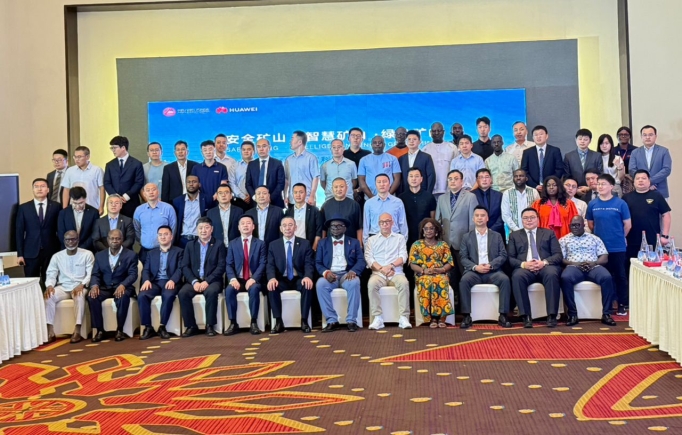Ghana is positioning itself as a continental leader in green and digital mining, following bold calls from industry players and technology partners at the “Green Future” Mining Summit held in Accra last Friday.
The summit, organised by Huawei Ghana in collaboration with the Association of China–Ghana Mining (ACGM), brought together policymakers, technical experts and business leaders to chart a path for cleaner and more intelligent mining operations.
The forum highlighted the growing importance of sustainable energy and digital innovation in reshaping the mining industry at a time when environmental concerns and global competition are intensifying.
With mining continuing to play a central role in Ghana’s economy, participants stressed that embracing digital tools and greener methods was no longer optional but a necessity for future growth.
The Chief Executive Officer of the Ghana Chamber of Mines, Ing. Dr Kenneth Ashigbey, underscored the urgency of change.
He said the mining sector, which has long been associated with environmental degradation, must embrace technological innovation and sustainable practices to remain viable.
“We cannot continue with the old ways if we want to protect our environment and create long-term prosperity,” he stated, adding that investment in digital tools would improve efficiency, safety and community engagement.
Huawei Ghana’s Managing Director, Jason Cao, outlined the global trends reshaping the industry, noting that the convergence of the digital economy and energy transition was forcing mining firms to adapt. “Against the backdrop of the digital economy and global energy revolution converging, the mining industry is rapidly advancing toward greener, more intelligent, and safer operations,” he said. He called for deeper partnerships among governments, companies and communities to accelerate the transition.
Mr Cao explained that Huawei was ready to deploy integrated one-stop microgrid solutions for smart mining. “Together, we will build a robust digital and intelligent foundation, powering the digital transformation of mining enterprises in Ghana,” he pledged, emphasising the company’s commitment to long-term collaboration with local stakeholders.
For his part, ACGM Chief Executive Officer, Tang Zhenjiang, said the association was committed to supporting the sector through technology transfer, skills development and the promotion of safe mining practices. He stressed that adopting intelligent systems would not only reduce carbon emissions but also improve productivity and worker safety. “The mining of the future must be both smart and sustainable. Ghana can become a model for Africa in this regard,” he said.
The summit also created a platform for knowledge-sharing, with participants exploring case studies from other countries where digital technology had transformed mining into a safer, more environmentally friendly industry. Discussions centred on how Ghana could adopt similar solutions while tailoring them to its unique resource and energy needs.
Speakers agreed that the transformation of mining could only succeed if there was strong political will, reliable digital infrastructure, and consistent investment in renewable energy. They also urged stronger engagement with communities affected by mining, stressing that trust and social responsibility were as important as profits.
In closing, organisers said the summit marked the beginning of an ongoing conversation about how Ghana could use technology and sustainability to unlock the full potential of its mining sector. They pledged to turn the ideas discussed into concrete projects that would support the government’s development agenda and ensure the sector remained competitive in a rapidly changing world.

